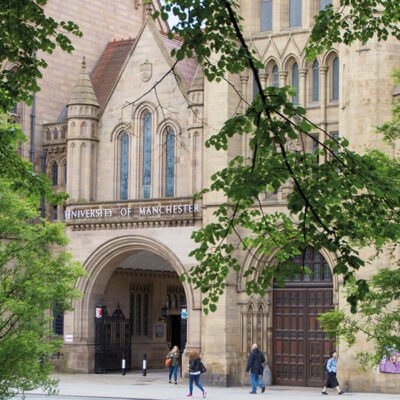The Reserve Bank governor, Michele Bullock, has downplayed the role of government spending in keeping inflation elevated, citing consumer spending and China’s slowdown as bigger influences on Australia’s economic trajectory.
“I want to be clear that public demand is not the main game,” Bullock told the House of Representatives economics committee on Friday. Instead, she pointed to consumption, residential construction and trade as “the big swing things that are going to impact us over the next year or so”.
Bullock’s comments come 10 days after the RBA left the cash rate unchanged for a sixth board meeting in a row, with Bullock warning that an interest rate cut was unlikely this year. A week ago, she also said the bank wouldn’t hesitate to lift the rate if annual inflation wasn’t on track to reach its 2%-3% range.
The RBA has raised its forecasts for the pace of growth in spending by federal, state and local governments to an annual clip of 4.3% by December and 4.1% by next June. That compared with its projections three months earlier of spending growth rates of 1.5% and 2.1%, respectively, prompting some to speculate the central bank’s inflation efforts were being undermined by public sector profligacy.
Three months earlier the bank had projected spending growth rates of 1.5% and 2.1%, respectively, prompting some to speculate its efforts to rein in inflation were being undermined by public sector profligacy.
Still, inflation remained “too high” and its reduction from an annual 7.8% peak at the end of 2022 “has been slow”, Bullock said. “Based on what the board knows at present, it does not expect that it will be in a position to cut rates in the near term.”
Among the threats posed to the country’s economic fortunes, China’s weak growth was “a risk that’s very pertinent for us”, Bullock said.
China was easily Australia’s biggest trading partner but also critical for the prices of commodity exports, particularly iron ore. Massive over-building – with enough completed apartments to meet years of demand in many cities – has dented consumer sentiment but also curbed output from steel mills and other sectors of the economy.
“That is something that we’re watching quite closely because developments in China can have quite a big impact on the way our trade develops, and therefore on our growth,” she said.
RBA officials also downplayed a rise in insolvencies as firms struggled with higher interest rates. The recent increase was against “absolutely historically low levels” during the pandemic, Bullock said. “I you look at the trend of insolvencies over time, we’re not even back to where we were trend-wise, pre pandemic.”
The assistant governor, Brad Jones, said the construction sector had been “front and centre” to the rise in firms going bust, but they were typically very small enterprises with “low single-digit number of employees”.
In the past six months there had been “some levelling out in the stress in the construction sector”, Jones said, but noted pressure was building in the arts, hospitality and some segments of the retail space.





